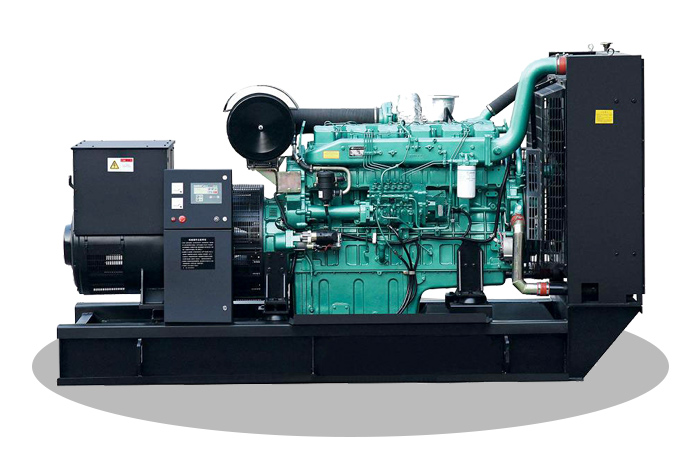Introduction
Tropical regions are known for their hot and humid climates, posing unique challenges for power generation. In these areas, reliable and efficient energy sources are crucial to support various industries, businesses, and communities. Diesel generators have long been a popular choice for providing backup power in tropical regions due to their versatility and robustness. This article will delve into the advantages, considerations, and best practices for using diesel generators in tropical climates.
Advantages of Diesel Generators in Tropical Regions
1. Reliability: Diesel generators are known for their reliability and durability, making them well-suited for continuous operation in challenging conditions. In tropical regions where power outages are common due to extreme weather events, diesel generators can provide a reliable source of backup power to keep essential services running.
2. Fuel Availability: Diesel fuel is widely available in most tropical regions, making it easy to refuel diesel generators when needed. This accessibility ensures that businesses and communities can maintain a consistent power supply even during emergencies or natural disasters.
3. Efficiency: Diesel generators are highly efficient in converting fuel into electricity, making them a cost-effective option for power generation in tropical regions. Their fuel efficiency also helps reduce operational costs over the long term, making them a sustainable choice for powering various applications.
4. Power Output: Diesel generators are capable of providing high power output, making them suitable for both residential and commercial use in tropical regions. Whether powering a small household during a blackout or supporting a large industrial facility, diesel generators can meet the diverse power needs of different users.
Considerations for Using Diesel Generators in Tropical Regions

1. 200kw diesel generator for remote scientific projects and Humidity: Tropical climates are characterized by high temperatures and humidity levels, which can impact the performance of diesel generators. It is essential to ensure proper ventilation and cooling to prevent overheating and maintain optimal operating conditions for the generator.
2. Regular Maintenance: Regular maintenance is key to ensuring the reliable operation of diesel generators in tropical regions. Dust, debris, and moisture can accumulate on the generator components, leading to decreased efficiency and potential breakdowns. Scheduled maintenance checks and cleaning are essential to keep the generator in peak condition.
3. Water Ingress: Tropical regions are prone to heavy rainfall and flooding, which can pose a risk of water ingress into the generator system. Proper waterproofing and installation of the generator in a raised location can help prevent water damage and ensure uninterrupted power supply during inclement weather.
4. Corrosion Resistance: The high humidity levels in tropical regions can accelerate the corrosion of metal components in diesel generators. Using corrosion-resistant materials and coatings can help prolong the lifespan of the generator and reduce maintenance costs over time.
Best Practices for Using Diesel Generators in Tropical Regions
1. Sizing and Capacity: Properly sizing the diesel generator based on the power requirements of the load is essential for efficient operation. Oversized generators can lead to fuel wastage and decreased efficiency, while undersized generators may fail to meet the power demands during peak usage. Consulting with a professional to determine the optimal generator size is recommended.
2. Fuel Quality: Ensuring the quality of the diesel fuel used in the generator is crucial for maintaining optimal performance. Contaminated or degraded fuel can clog the fuel system, leading to engine issues and decreased efficiency. Regularly testing and filtering the fuel can help prevent fuel-related problems and ensure smooth operation.
3. Remote Monitoring: Implementing a remote monitoring system for the diesel generator can help track performance metrics, detect issues early, and schedule maintenance proactively. Remote monitoring allows operators to keep an eye on the generator's status from anywhere, ensuring timely interventions and minimizing downtime.
4. Training and Education: Providing training to operators and maintenance staff on proper generator operation and maintenance practices is essential for maximizing the lifespan of the equipment. Educating personnel on safety protocols, troubleshooting techniques, and best practices can help prevent accidents and ensure efficient operation of the diesel generator.
Conclusion
Diesel generators play a vital role in providing reliable backup power in tropical regions, where challenging climates and frequent power outages are common. Their reliability, fuel efficiency, and high power output make them a popular choice for various applications, from residential households to industrial facilities. By considering factors such as heat and humidity, regular maintenance, water ingress, and corrosion resistance, users can ensure the optimal performance of diesel generators in tropical climates. Implementing best practices such as proper sizing, fuel quality management, remote monitoring, and training can further enhance the efficiency and reliability of diesel generators in tropical regions. With careful planning and maintenance, diesel generators can continue to serve as a dependable power source for communities and businesses in tropical climates.
